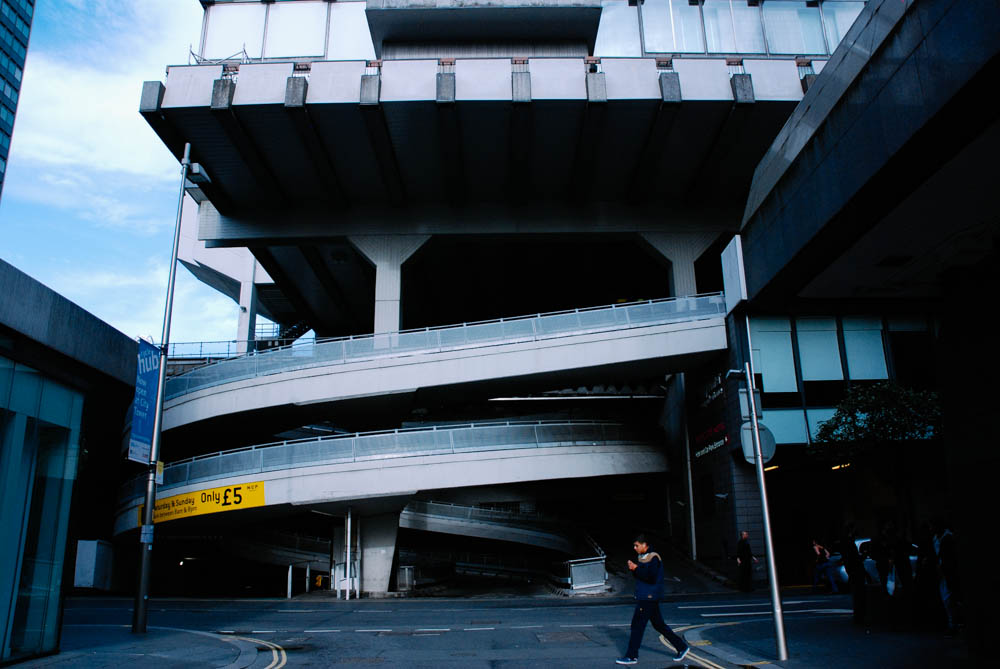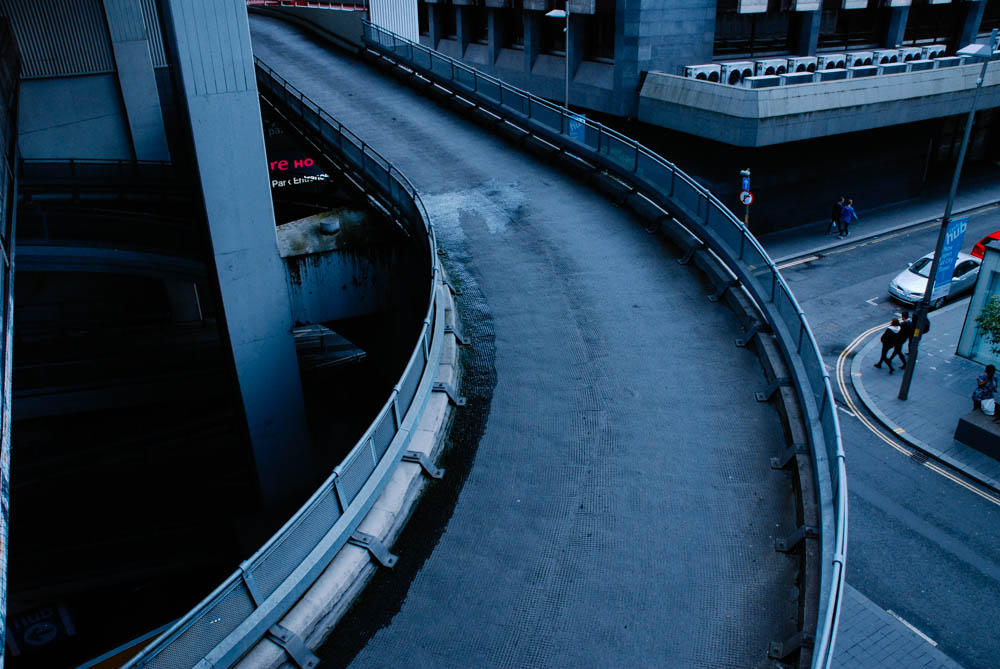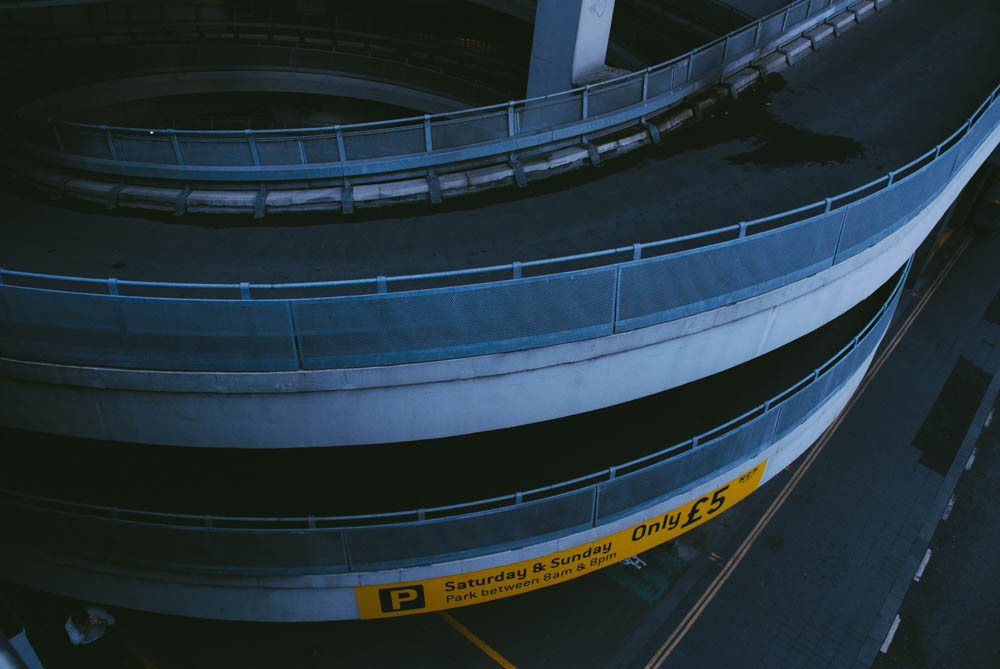SIXTIES UTOPIA
WRITTEN BY Hayley Flynn
READING TIME: 2 minutes
Originally published in Manchester Art Gallery's Dream Without Frontiers publication.
What does Piccadilly Hotel mean to you? To George Best it’s hiding in a cleaner’s cupboard from Matt Busby. To the ears of the city its cantilevered form straddles the headquarters of Piccadilly Radio. It’s a hotel built only for cars. It’s the future suspended in the 60s.
Piccadilly Hotel (to eventually become the Mercure) has no ground floor pedestrian entrance - because this is the future and why walk when you have a car. A vast William Mitchell mural made of broken pianos spans four whole floors of the stairwell because art and architecture go hand-in-hand in the future.
One face of the decade’s utopia is Simon Dee who filmed the end credits of his talk show Dee Time on the concrete car ramp of the hotel. In his convertible Jaguar, with a model on his arm, Dee spins down the concentrically-looping concrete ramp with the insouciance of a man with no troubles. And in the 60s he had none. Dee’s 60s were his dreams; no frontiers. From his beginnings in pirate radio his career spiralled ever onwards and his lifestyle became one of a playboy. His 60s are forever captured in a bell jar of parody by way of the film Austin Powers, based on Dee himself.
And as he hits the road and waves goodbye to the crowd at the foot of the ramp, upstairs Albert Finney (Charlie Bubbles, 1967) lays supine on a bed, outside Julie Christie strolls across the concrete mega-structure (Billy Liar, 1963), and everybody else? They turn a blind eye to the fact that the ceiling collapsed twice during the opening ceremony because this place, this hotel, is promised to be the greatest hotel in all of Europe.





